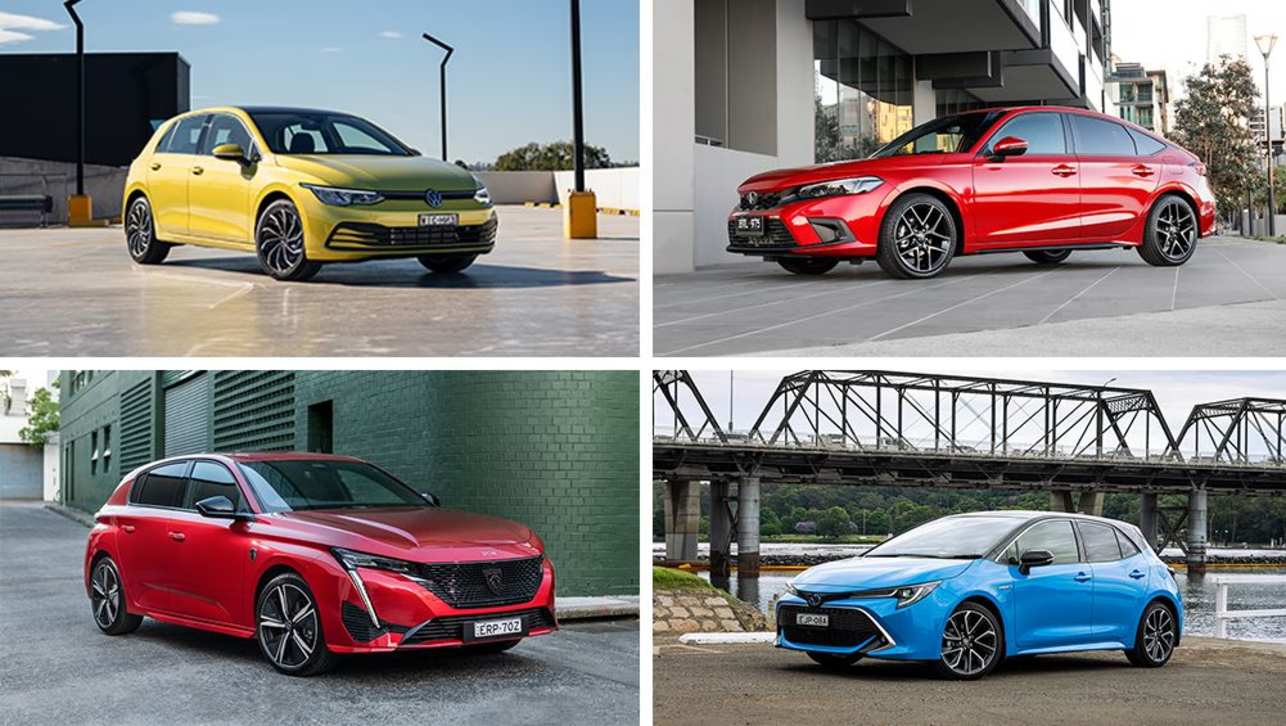About 10 to 15 years ago there was a shift in market trends from large, usually inefficient passenger cars to smaller, more frugal models like hatchbacks and compact sedans.
Fuel prices were biting and buyers were rejecting the sorts of cars their parents bought - like Ford Falcons and Holden Commodores.
Initially at least, people were downsizing. This was around the time that the second-generation Mazda3 became the top-selling car in Australia, outpacing the aforementioned large sedans that have since disappeared.
It looked like maybe we were heading down a more sustainable path, away from the big dinosaurs of our recent past, and following the European trend towards small cars.
But alas, we are now in a situation in Australia where bigger, it appears, is better for a large chunk of buyers. A quick look at the sales figures proves that.
Fifteen years ago in 2007, the biggest market segment by some margin was small passenger cars. So hatchbacks and small sedans like the Mazda3, Hyundai i30, Toyota Corolla, Honda Civic, and the since departed Holden Astra and Ford Focus.

Small cars made up a 22 per cent stake of total sales that year. That was more than all SUVs combined, and way more than 4x4 utes that only made up 7.9 per cent of total sales.
Back then the Corolla was the second best-selling car in the country behind the still-dominant Commodore. And it was well ahead of the HiLux ute which is currently the best-selling car in Australia. In fact, the top 10 that year featured five small or light cars.
So, what has happened? Despite warnings of the catastrophic effects of human-induced climate change, and with cars, SUVs and light-commercial vehicles making up around 10 per cent of Australia’s total greenhouse gas emissions, buyers are forking out lots of money for medium and large SUVs, one-tonne utes, and increasingly, large full-size American pick-ups.
But should we rewind? Shouldn't we go back to buying more compact cars that don’t take up so much space on our roads, and that don’t pump as much pollution into the atmosphere?

I for one say yes, we should. And I would ask anyone that’s about to buy a new car - do you really need to buy a pick-up or an SUV?
Now before you come for me and say that you need your ute for work, or you have four children and need a massive people-hauling SUV - I get it. There are clearly circumstances in which people do require bigger vehicles for work purposes, or to tow a boat or caravan. And I appreciate a Mazda3 might not cut it for people with multiple offspring.
But equally, there are a massive number of people buying these huge vehicles when they absolutely do not need them. They are buying a Ranger, for example, because they just want one.
I would like to put a case forward for a return to hatchbacks. This market segment is sliding big time, but there are a number of models that are far more practical than you might think.

I have just spent three months driving a Peugeot 308 GT Premium hatch, and that car has a boot that can swallow close to 400 litres worth of cargo. And it handled four fully grown men - and all of their stuff - for a long weekend road trip.
At no point did I think, ‘gee this would be easier with a ute or an SUV’. Because a) it wouldn’t, and b) the drive experience is much more enjoyable than that of an equivalently sized or larger SUV.
The current crop of small cars - the VW Golf, Honda Civic, Cupra Leon, BMW 1 Series, Audi A3, and even the likes of the Hyundai i30 and Toyota Corolla, all offer a genuinely engaging drive experience. If you like driving, I guarantee you’ll have more fun in a hatchback than in an SUV.
Also, if you do need more boot space, some of these models, including the Golf and the 308, come in a wagon body style.
There’s also the fact that small hatchbacks, sedans and wagons take up less space on our roads. Do you really need to see above all of the traffic ahead of you?

Parking is also much easier in a small hatch. And given the compact dimensions of some spaces, particularly in inner-city areas, cramming them with HiLuxes and Hyundai Palisades just consumes valuable space.
And then of course there is the savings on fuel. Obviously, a small hatch is going to be more efficient than a much larger SUV or a ute. But they are also more frugal than similarly sized - and even mechanically related - SUVs given they are usually lighter weight.
Look, I get it. The horse has bolted. People are snapping up large SUVs and utes at record rates. But I think as we march towards an all-electric future, it’s a good time to celebrate and revisit the humble hatchback.
They are more practical than you think, and they don’t consume anywhere near as much space or fuel as bigger beasts.

If your work and/or life calls for a big bruiser of a ute or car, then have at it.
All I’m asking is that you reconsider your need for a ute or massive SUV if you don’t actually need one.




-2.jpg)


.jpg)

.jpg)
.jpg)



.jpg)
.jpg)

.jpg)
.jpg)
.jpg)



.jpg)


.jpg)


.jpg)

.jpg)
Comments